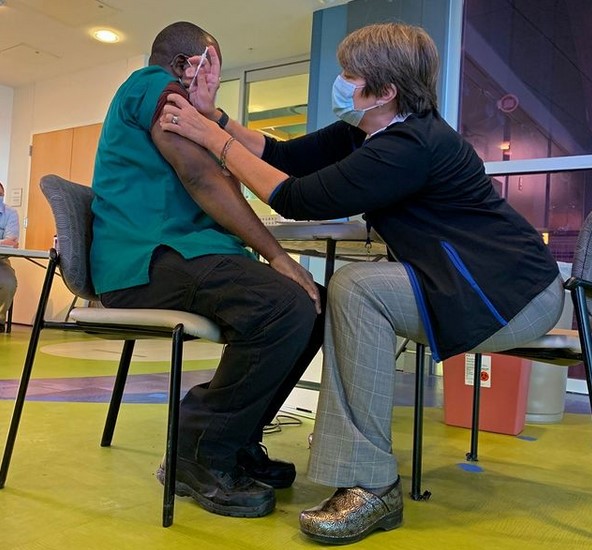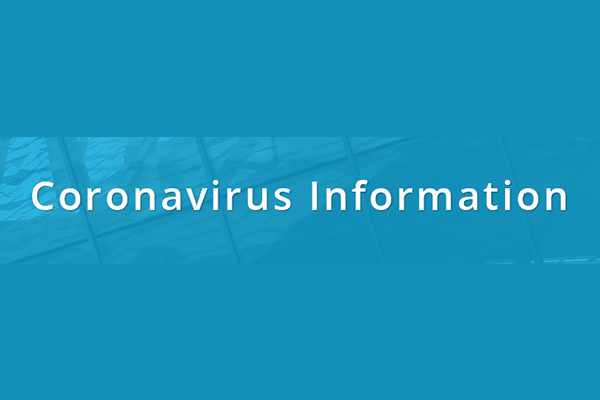A beginner’s guide to COVID-19 vaccines, with federal, state and local resources
As vaccine supply and eligibility continues to expand, we’ve received questions from members of our community about how vaccination works, what the timetable looks like, and how this process might impact the College in the months and years ahead.
In an effort to help root these conversations in widely accepted science and facts, we offer the following information and further reading on COVID-19 vaccines.
Centers for Disease Control & Prevention (CDC) resources
Throughout the pandemic, the CDC has consistently been a leading source of accurate information for people in the United States and around the world.
The CDC maintains a comprehensive vaccine information hub online that is updated on a regular basis with new information. The CDC also updates these pages to explain what scientists and doctors do not yet know about the vaccination process, as research is ongoing.
We found this list of the Key Things to Know About COVID-19 Vaccines especially helpful. Some highlights from that list:
COVID-19 vaccines are effective
Studies have shown that all three vaccines approved as of this writing are effective at keeping people from getting COVID-19, though scientists are still learning how well vaccines prevent you from spreading the virus to others. More studies are also needed to understand how new coronavirus variants may affect the effectiveness of existing COVID-19 vaccines.
COVID-19 vaccines are safe
Millions of people have already received vaccines, and these vaccines underwent the most intensive safety monitoring in U.S. history. There may be some side effects for those who get the vaccine, but these are normal signs that your body is building protection.
Vaccine supply is gradually increasing
Supply is currently limited, but the federal government is working toward making vaccines widely available for everyone at no cost.
Another useful CDC resource is this list of Frequently Asked Questions about the Vaccines, which includes good reminders that those who get vaccines will still need to wear masks and keep social distance to prevent spread. This is an important precaution, because scientists are still studying whether people who get vaccinated can carry and transmit the virus to others.
There’s lots more to learn at the CDC website, including:
Common Myths and Facts about COVID-19 Vaccines
How Vaccines Get to You: Information about production, transportation and administration
What to Expect at Your Appointment to Get Vaccinated for COVID-19

State and local resources
The process of getting “shots in arms” is complex, with vaccine manufacturers working with federal, state and local governments, and many other partners, to ensure safe and effective distribution.
The federal government determines how many vaccine doses are delivered to states. Supply is gradually increasing but remains limited in New York.
New York State’s COVID-19 vaccine resource hub includes a great deal of information about how and when residents can get vaccinated.
Millions of New Yorkers are eligible to make appointments to be vaccinated, but due to supply constraints, appointments may not be available for weeks in advance.
The easiest way to check your eligibility and appointment availability is to use the state’s Am I Eligible app, which includes a list of state-operated vaccination locations. You’ll be asked to input some information about yourself, and if you are eligible for the vaccines you will be given instructions for next steps.
The state is also reporting on its progress to date on their COVID-19 Vaccine Tracker, which is updated daily with new numbers on doses administered, broken down by region.
Many counties are also publishing vaccine information online. Ulster County offers tools for finding vaccination sites (most counties are running their own sites in addition to the state-operated locations). Dutchess County and Orange County provide similar online services to their residents, as do most other counties in New York.

